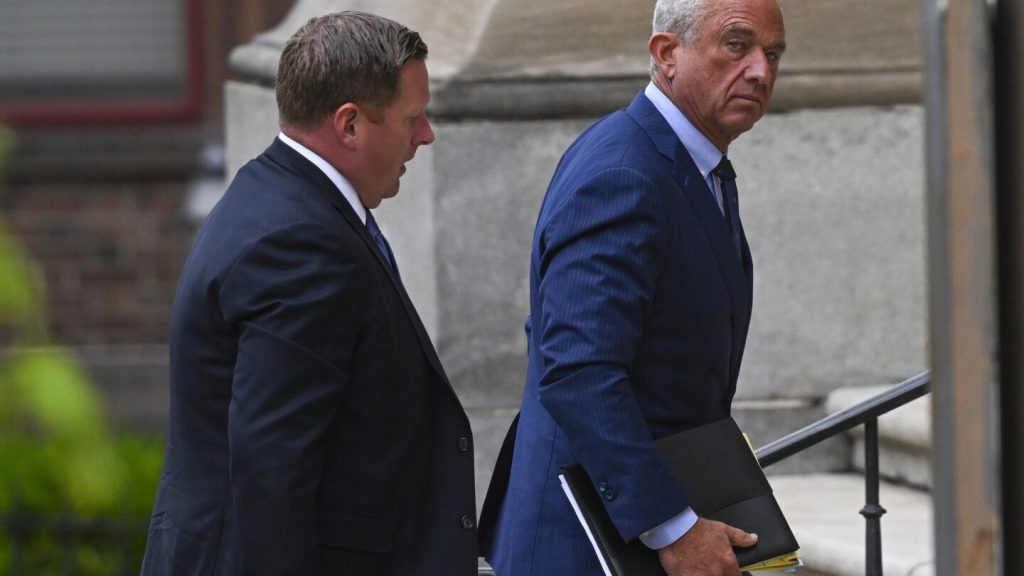Robert F. Kennedy Jr. faced scrutiny in an Albany courtroom as he defended his claim of residency in New York in an effort to stay on the state’s presidential ballot. Kennedy testified that he lived in the affluent Katonah suburb and had only temporarily moved to California in 2014 to be with his wife, Cheryl Hines. The lawsuit, filed by voters, challenges his New York ballot petition, alleging discrepancies in his residency claims. Kennedy’s testimony was occasionally tense as he clarified details such as his driver’s license registration and the relocation of his possessions.
The lawyer representing the voters, Keith Corbett, questioned Kennedy on various aspects of his residency claim, including a federal statement of candidacy with a Los Angeles address and the movement of his personal belongings to California. Kennedy maintained that he had lived in New York for 50 years and appeared confident in responding to most questions. However, he faced challenges related to trusts and real estate transactions. Kennedy vehemently denied allegations of voter fraud when Corbett brought up documents showing an outdated address on his voting records.
The lawsuit against Kennedy, backed by Clear Choice PAC, a super PAC supporting Democratic President Joe Biden, alleges that the address listed on his New York ballot petition is false, as he has resided in the Los Angeles area since 2014. Testimony also revealed that Kennedy was renting a room in Katonah from Barbara Moss, who owns the property, for $500 a month. Moss testified that Kennedy’s payments began only after questions were raised about his claim of living in New York. The lawsuit contends that Kennedy only occasionally visited the Katonah residence.
Kennedy, in a video posted on his Facebook page, reiterated his long-standing connection to New York, citing his father’s move to the state in 1964 to run for the U.S. Senate. Despite temporarily living in California to support his wife, Kennedy emphasized his commitment to New York and his intention to return to the state. While facing challenges in various states to qualify for the presidential ballot, Kennedy’s campaign has garnered enough signatures to be on the ballot in 42 states. His candidacy has raised concerns among both Democrat and Republican strategists due to his potential impact on the election.
As Kennedy’s testimony continued, his claims about his residency in New York were dissected, revealing inconsistencies such as discrepancies in his voting records and the timing of his rental payments. Despite facing scrutiny over his residency status, Kennedy remained firm in his assertion of his connection to New York and his intentions to return to the state permanently. The lawsuit challenging his residency claims and petition for the New York ballot will be decided by a judge without a jury. Kennedy’s independent candidacy, bolstered by his name recognition and loyal base, poses a potential challenge to both major party candidates in the upcoming election.


